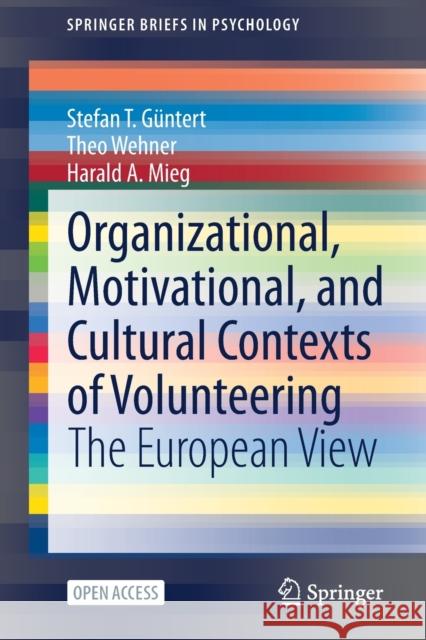Organizational, Motivational, and Cultural Contexts of Volunteering: The European View » książka
topmenu
Organizational, Motivational, and Cultural Contexts of Volunteering: The European View
ISBN-13: 9783030928193 / Angielski / Miękka / 2022 / 76 str.
This open access book offers a comprehensive view of the phenomenon of volunteer work: it examines motivational factors and questions of corporate organization and the social environment. In particular, this is the first book to present volunteer work in detail as a psychosocial resource and a source of well-being that should not be overused or abused. The book is based on the authors' 15 years of research into volunteer work in Europe. It provides clear instructions on designing volunteer work tasks, and on where boundaries must be respected. The findings include insights into cultural and national differences, and offer practical advice on the organization of volunteer work. This book answers questions like: How do we understand voluntary work? How essential is it that this kind of work remains unpaid and carried out by so-called laypersons with special motives? And what follows from this for the interaction between voluntary work and professionalized, paid employment? The analysis draws on perspectives from wellbeing research, organizational and industrial studies, social work, and related social sciences.











